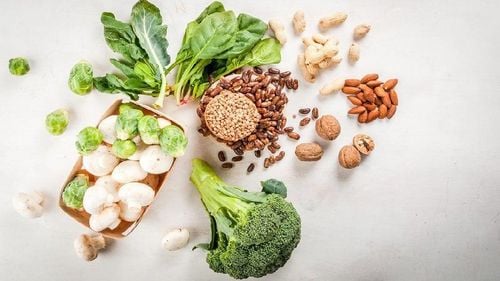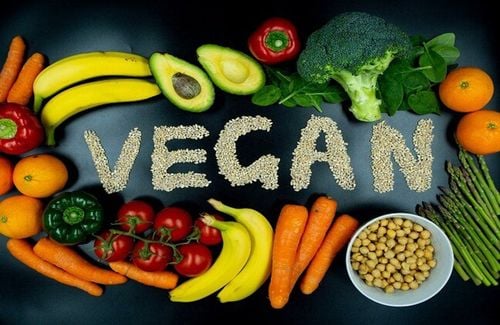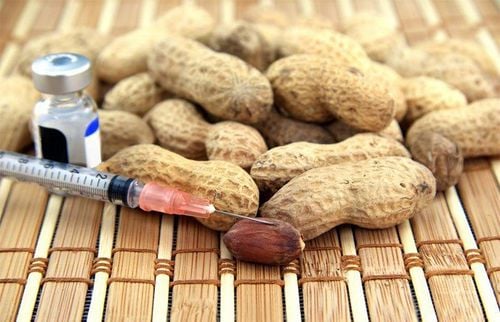This is an automatically translated article.
Being vegetarian or not eating meat is becoming more common or at least the number of people following a non-vegetarian diet is also trending up. While about 4% of Americans are full-time vegetarians. Of these, about half of these people are also vegans (vegans are people who absolutely do not eat meat and any animal products).1. Disadvantages of Vegetarian Diet
According to a recent poll by a research group called "Vegetarian Resource Group" - 46% of respondents said that they always or sometimes eat vegetarian meals when going out for dinner. outside. The reason is that they believe this diet is good for health.Although veganism is known to be a healthy diet, recent studies have also exposed a lot of downsides to a strict vegan diet, including reports of stroke risk, photos brain damage, hair loss and depression. So what are the downsides to this supposedly healthy eating pattern?
For generally healthy people, there doesn't seem to be any documented health risks associated with vegetarianism. However, the problem comes from the quality of foods with respect to health benefits such as vegetables are good for health and french fries are not at all.
A vegan diet is one that excludes meat, fish and poultry. Vegetarians also do not eat animals and animal products such as milk, eggs, and cheese. Vegans don't even eat honey.
There are downsides to not eating meat. However, training in nutrition and proper use of supplements can help overcome these downsides.

Chế độ ăn thuần chay là chế độ loại trừ thịt, cá và gia cầm
2. Compare the disadvantages of being vegetarian (vegetarian) and vegan (vegan)
2.1. Stroke risk British researchers who followed more than 48,000 men and women with no history of heart disease or stroke for about 18 years found that vegetarians had a 13% lower risk of heart disease compared with vegetarians. meat eater. But they also had a 20 percent higher stroke rate than meat eaters. The above statistics increase and decrease by 3 per 1000 people every ten years.However, other authors pointed out the limitations of the above study. This is an observational study, so there is no in-depth investigation of cause and effect. This study was also conducted in the United States, and vegetarian diets may vary from region to region. This is a very interesting topic. Research in the United States has shown that a vegetarian diet does not reduce the risk of stroke. However, it is clear that we need more research on this issue.
2.2. Effects on brain health Another group of experts demonstrates that the trend towards vegetarianism can lead to a "choline crisis". Choline is a nutrient that is important for brain health and other functions. It is found in meat and poultry, and these are substances that the body cannot synthesize on its own outside of food.
"Vegetarian diets are certainly low in choline. However, by eating a few eggs a week can actually help increase choline levels in people who eat eggs. Vegetarians should consider taking supplements. potential, especially vegetarianism in women of childbearing age. Is it advisable to use certified, licensed dietary supplements
2.3 Hair loss Can a meat-free diet lead to hair loss? A recent study found that severe protein deficiency and a lack of certain other nutrients can lead to hair loss.Meat is a nutrient-dense food.Meat contains iron, B vitamins, and zinc, all of which are both important for hair growth.

Một nghiên cứu gần đây cho thấy rằng thiếu protein nghiêm trọng và việc thiếu một số các chất dinh dưỡng khác có thể dẫn tới rụng tóc
2.4. Mood problems Can vegan and vegetarian diets affect your mood? The research results give mixed and quite contradictory results. Some studies have found that not eating meat improves mood while others prove the opposite. In a study of 400 new mothers, 80 of them suffered from postpartum depression. A vegetarian diet appears to be a predisposing factor for depression.
In another study, researchers compared vegetarians (vegetarians), vegans (vegans) and people who ate both plants and animals (mixed) and found that the vegans ( vegan) had lower anxiety and stress levels than meat eaters.

Một nghiên cứu đã chỉ ra rằng người ăn thuần chay có mức độ lo lắng và căng thẳng thấp hơn những người ăn thịt
Please dial HOTLINE for more information or register for an appointment HERE. Download MyVinmec app to make appointments faster and to manage your bookings easily.
Article reference source: webmd.com, healthline.com












